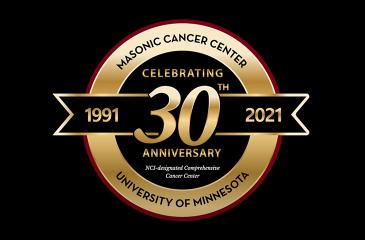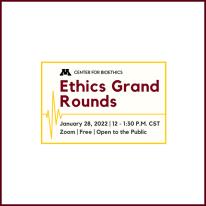There are approximately 1,500 centers providing cancer care in the U.S. today. Of these, the National Cancer Institute (NCI) recognizes the top four percent as NCI-Designated Cancer Centers. Of these, only 51 are recognized as Comprehensive Cancer Centers—centers that can deliver cutting-edge patient care; conduct laboratory, clinical, behavioral, and population-based research; educate and train researchers and health care professionals, and provide scientific leadership at the national level.
Since 1998, one of these centers has been here, in Minnesota, at our University, making a difference in lives around the world. The Masonic Cancer Center creates a collaborative research environment focused on the causes, prevention, detection, and treatment of cancer. It applies that knowledge to improve the quality of life for patients and survivors. It impacts cancer care worldwide by sharing its discoveries with other scientists, students, professionals, and the community.
It is also deeply embedded in the fabric of our statewide University system and clinical care partnerships, with approximately 670 members from many different disciplines.
I cannot imagine our University without this key resource that brings hope and care to patients statewide. In a normal year (the last one being 2019), the Masonic Cancer Clinic sees roughly 35,000 clinic visits, serves over 3,000 new patients, while the Masonic Cancer Center leads the Minnesota Cancer Clinical Trials Network to expand clinical trials to patients outside of the population centers.
In 2023, the Masonic Cancer Center will undergo a rigorous external review to renew its designation and funding. In 2018, under the leadership of Dr. Douglas Yee, the last competitive review process awarded the Masonic Cancer Center an outstanding rating.
Please join me in supporting the leadership, faculty, and staff of the Masonic Cancer Center as they prepare for their next application. The work they do is critical—to all of us in the health sciences, to the University, and to people with cancer everywhere.
Driving Innovation & Discovery

A collaboration among the U of M and Mayo Clinic, the Minnesota Partnership for Biotechnology and Medical Genomics recently announced its 2022 research awardees. This marks the partnership's 18th year of spearheading new scientific ideas to improve the health of, and health care for, Minnesotans.
- Daniel Billadeau, PhD, Mayo Clinic; Frank Cichocki, PhD, University of MinnesotaManipulating Natural Killer Cell Signaling to Enhance Immunotherapy
- Christopher DeSimone, MD, PhD, Mayo Clinic; Alena Talkachova, PhD, University of Minnesota
Novel Implementation of Spatiotemporal Mapping and Electroporation for the Treatment of Persistent Atrial Fibrillation - Eva Morava-Kozicz, MD, PhD Mayo Clinic; Kyriakie Sarafoglou, MD, University of Minnesota
Unexplored Pathways: The Impact of Abnormal Glycosylation on the Hypothalamic-Pituitary-Adrenal and -Gonadal Axes and Bone Health in Patients with Congenital Disorders of Glycosylation - Matthew Johnson, PhD, University of Minnesota; Kai Miller, MD, PhD, Mayo Clinic
An Intraoperative Stylet-Based Electrode Array for Mapping Subcortical Brain Regions - William Pomerantz, PhD, University of Minnesota; Vijay Shah, MD, Mayo Clinic
Lead Optimization of a Novel Epigenetic Inhibitor Series for Alcoholic Hepatitis Therapy
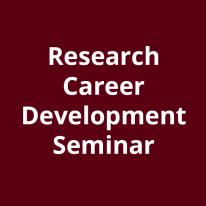
Incorporating Existing Networks in Multi-Site Studies
CTSI career development seminars offer learning opportunities for faculty, staff, and students on a variety of research-related topics. Join them on Feb. 2 for part of the Multi-site Trial Development and Implementation Miniseries and learn when to leverage networks for multi-site studies, best practices in site selection, and identifying the added value and complexity of using established networks.
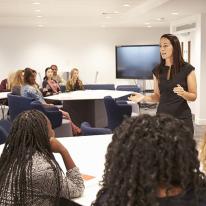
Designing Interactive Lectures
The Age-Friendly Care and Education Collection has educational and clinical resources for educators, health professionals, learners, and caregivers for older adults which includes 900+ resources, including those created by our own Minnesota Northstar Geriatric Workforce Enhancement Program. The Designing Interactive Lectures toolkit is designed to provide instructors with ideas, examples, and guidelines to transform lectures into interactive and engaging learning experiences that will facilitate learners' achievement of intended learning outcomes. This toolkit is for any faculty or instructor in the health care education field. To meet the challenge of preparing a diverse health professions workforce, educators are needed who are skilled at using innovative instructional methods that attract learners.
Advancing Professional Education & Training
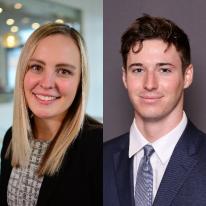
OACA Interprofessional Internship Spotlight: Minneapolis Veterans Affairs Health Care System
Colton Cannon, BS, from the School of Dentistry and Claire Knutson, BS, from the School of Public Health are working with the Minneapolis Veterans Affairs Health Care System to observe how the recently implemented tiered huddle system is operating. The hope is to expand these huddles across the organization and help to develop and implement tools to scale up this work, including development of an objective method to monitor the lifecycle of the tiered huddle system and monitor team alignment.
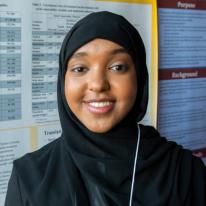
Students in Research: Plan your Summer Career Development Now
Are you a research-focused undergraduate, professional student, or early pre-doc, or do you work with one? The CTSI Pathways to Research Program (PReP) & Advanced Pathways to Research Program (A-PReP) are looking for promising scholars to apply for a paid summer research experience. Undergraduate students who are underrepresented from any Minnesota education institution: apply for PReP. Doctoral-level health sciences students and early-predoctoral students: apply for A-PReP. Populations underrepresented in research are highly encouraged to apply.
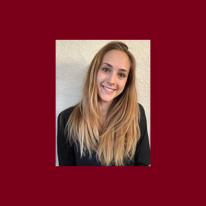
Students: What Do You Enjoy Most About Interprofessional Activities?
“Interprofessional activities enhance the communication and collaboration skills that I've developed throughout the occupational therapy curriculum. They provide engaging opportunities to gain hands-on experience within both new and familiar groups with navigation of conflict, feedback, engaging others in conversations, and problem solving, to name a few. These experiences would be difficult to create within the traditional, discipline specific classes in our health care programs, and are really complementary to the education and training provided through them.” - Bobbi Berg, OTS, Program in Occupational Therapy
U-Wide Events and Opportunities
Join the Center for Bioethics on Jan. 28 for part I of a two-part discussion on the Minnesota End-of-Life Option Act, which was reintroduced to the MN state legislature in early 2021. At this panel discussion, you will hear perspectives from a patient with a terminal illness, an Oregon based clinician, the lead author of the bill, and a health law and bioethics professor.

Bakken Center Mindfulness Programs Information Session
This Feb. 16 webinar will provide an introduction to mindfulness meditation and will be particularly relevant to those new to the practice or simply curious about the possible benefits of a mindfulness practice. Participants will have an opportunity to practice a short mindfulness meditation, share their experiences, and ask questions. Examples will also be provided for practicing everyday mindfulness, at work and at home.
